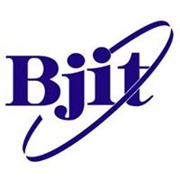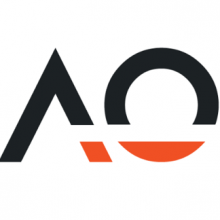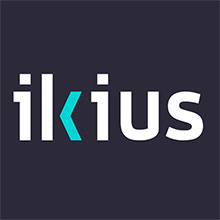
There are 14 Companies in Finland
that provide Azure Platform Services!
Finland’s IT sector is one of the most advanced in Europe and the second-largest IT hub in Northern Europe. The country has been through a strong digitalization process in the early 2000s, and skilled specialists are more and more attracted to discover the digital and tech possibilities the country has to offer.
Discover Top IT Companies in Finland specialized in Azure Platform and other related services. Find the best IT service providers for your projects.
Azure Platform, developed by Microsoft, stands as a versatile cloud computing platform known for its ability to empower organizations with a wide range of cloud-based solutions. It offers a comprehensive suite of services and tools designed to support businesses in their digital transformation journey.
Handpicked companies • No obligation to hire • 100% risk-free
Featured Companies in Finland
This month, the following Azure Platform companies managed to provide an outstanding service and support. It's worth taking a look.
Explore Top Azure Platform Companies in Finland
Techgropse is a leading Mobile App and Web Development Company, dedicated to turning innovative ideas into remarkable digital solutions. 500+ Clients
SEO Kari Nieminen is an SEO agency that does search engine optimization, on-page SEO, link building, article writing and local SEO services.
Services:
Your Partner in Financial Technology development
We harness the strengths of the web, mobile, cloud, cyber security, and blockchain technologies to help our clients to launch transformative digital s...
We are a full service digital marketing agency that brings you results, by building awareness, driving web traffic and growing overall sales!
Services:
Custom Software, MVP & AI‑Powered SaaS Development
Genese Solution is Cloud Computing & Consulting Company providing safe, seamless and rapid migration of your business applications to the cloud.
Next-gen digital experiences, with a Nordic touch
Highly specialised Microsoft Azure consultant company. Our Azure professionals help our customers to take full advantage of cloud
Custom software development and staff augmentation services
Filter Azure Platform Companies in Finland by Cities
Find the right tech company near you or from a specific city. Some of the best companies might be located in smaller cities.
Find more Azure Platform companies around the world
TechBehemoths is the world's most advanced and user-friendly platform to match IT Companies with real clients without hustle.
The Finnish IT Industry: Country Profile & Companies
Finland’s IT sector is one of the most advanced in Europe and the second-largest IT hub in Northern Europe. The country has been through a strong digitalization process in the early 2000s, and skilled specialists are more and more attracted to discover the digital and tech possibilities the country has to offer.
Among other things, Finland ranked 1st globally in the happiness index 4 years in a row, which gives another reason for skilled IT specialists to enter the local market, and the native Finnish professionals to remain and continue to develop the country's IT and the entire business ecosystem.
Finland’s contribution to the world's digitalization is huge - they brought the SMS, 5G, and Linux OS. This highlights, even more, the capabilities of Finnish tech workers in the field.
Why Work With Finnish IT Companies
Finnish IT companies made their way through the European IT market in 2008-2010, but at that time the market only started to grow and didn’t provide enough possibilities to Finnish companies to gain a world name. However, in 2015, IT companies from Finland managed to break the market with improved UI/UX solutions, high performance in software and web development, and also numerous startup incubators that relaunched the country’s IT sector and made it one of the most famous in the world.
From Finnish IT companies and digital agencies, you can expect everything from excellent and outstanding services. The 3400+ IT companies provide high-quality services for the local market via public-private partnerships, and for the international market via BPO, and direct services due to the open European Market.
Most Finnish IT companies are SME’s which are supported and facilitated by the government and local policies. In Finland, companies usually join IT parks and tech communities that help businesses find and benefit from local digital services.
What You Should Be Aware of When Working With Finnish IT Companies
According to Glassdoor, the average annual salary in the Finnish IT sector is 92,290 euros, which is also makes it higher than the average salary and hourly rate, which is 44 euros. In these regards, you may want to pay attention to prices before working with a digital agency from Finland.
Everything else, from project management and dev skills, should not be a reason for concern since Finnish skilled workers are enough, and everywhere in the local companies.
Are Finnish Companies Reliable?
The most well-known thing about Finnish IT companies is their high-quality services and products. This is why reliability is not a question for local digital agencies and companies from Finland. Also, due to market stability and reliability, foreign investors and IT companies are choosing Finland as their next location for new offices.
How Does the Finnish IT Sector Relate to the Neighboring Countries?
Across Europe, there are traditional IT sectors and more innovative ones. Finland focuses more on innovation and tries to bring digitalization to new sectors of the economy. There are eight pillars of the Finnish digital economy, and all of them connect each part of the economy and society to the web:
- Digital Trust
- AI
- Intelligent Connectivity
- New Space Economy
- Smart Mobility
- Data Centers
- Retail Tech and Ecommerce
- Financial Technology.
Some of these pillars are present in the traditional IT sectors such as FinTech, E-commerce, and Data Centers. The neighboring Sweden, for example, focuses more on e-commerce and FinTech, but lacks other digital directions that Finland has.
The latest Finnish sector that goes through digital transformation is the medical sector. Finnish digital agencies and IT companies focus now on providing a comfortable place for doctors and patients using digital technologies. This comfort touches aspects like interior design, acoustics, access to information, entertainment, and extends up to neural networks and involves AI in the surgery processes.
What is Azure Platform and what are its benefits for your projects?
Azure Platform, developed by Microsoft, stands as a versatile cloud computing platform known for its ability to empower organizations with a wide range of cloud-based solutions. It offers a comprehensive suite of services and tools designed to support businesses in their digital transformation journey.
There are more than 2722 IT companies that specialize in providing Azure Platform services to businesses across the globe. These companies serve as strategic partners, helping organizations leverage Azure to achieve their goals. Notable IT service providers in this domain include Accenture, Capgemini, Infosys, and Deloitte. They offer a spectrum of services, from Azure consulting and implementation to ongoing management and support.
Azure Platform service providers employ a combination of tools and technologies to deliver effective solutions. This may include Azure DevOps for continuous integration and deployment, Azure Monitor for performance tracking, and Azure Resource Manager for resource provisioning and management. It's essential to differentiate between Azure and Azure Platform: while Azure refers to the cloud platform itself, Azure Platform encompasses the set of services, solutions, and expertise offered by IT companies to optimize Azure for specific business needs.
Azure Platform is not limited to a single service but comprises a rich ecosystem of interconnected offerings. Related services include Azure Virtual Machines for scalable computing, Azure Kubernetes Service for container orchestration, Azure AI for artificial intelligence capabilities, Azure Data Services for robust data management, and Azure Security Center for enhancing security posture.
Selecting the right IT company for Azure Platform services is a critical decision. To make an informed choice, consider factors such as the provider's experience with Azure, client references, industry expertise, and the range of services they offer. Assess their ability to align Azure solutions with your business objectives, scalability requirements, and ongoing support capabilities.
Azure Platform services find applications in a wide array of projects, including:
-
Enterprise Resource Planning (ERP) Systems: Implementing scalable ERP systems to streamline business processes.
-
E-commerce Solutions: Building and managing high-performance e-commerce websites and platforms.
-
Big Data Analytics: Leveraging Azure's data analytics tools for data-driven insights.
-
IoT Solutions: Developing IoT applications for device management and data analysis.
-
AI and Machine Learning Projects: Building intelligent applications for predictive analytics and automation.
-
Cloud Migration: Migrating on-premises infrastructure to Azure for cost savings and scalability.
-
Cybersecurity Initiatives: Strengthening security through Azure's robust security services and monitoring capabilities.
-
Hybrid Cloud Deployments: Implementing a hybrid cloud strategy for data backup, recovery, and business continuity.













